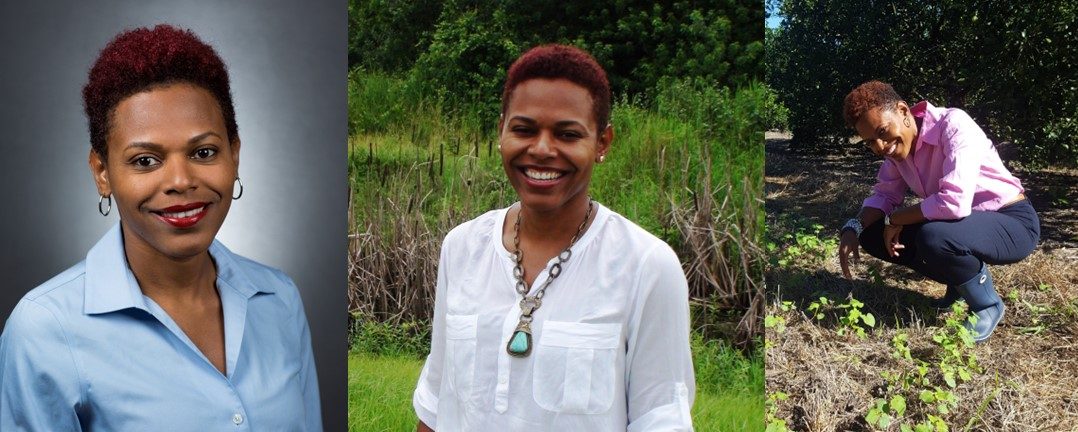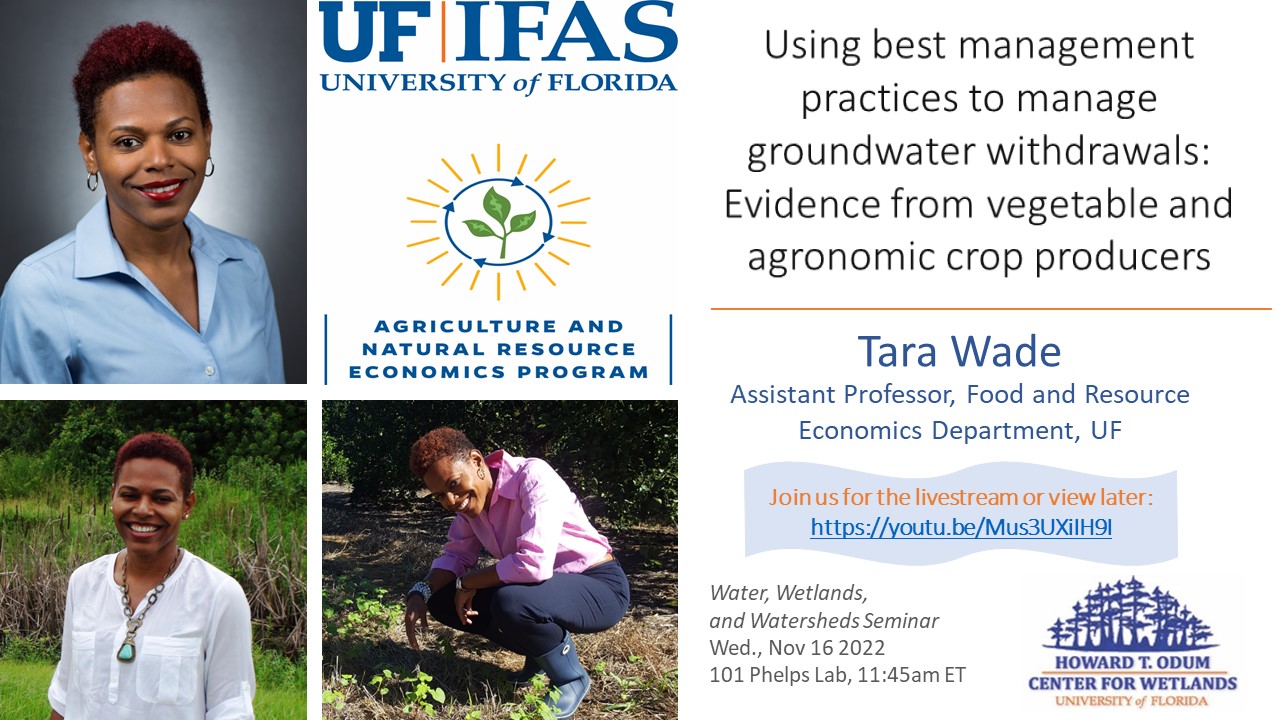
Tara Wade, Assistant Professor, Food and Resource Economics Department, UF
Join us for the livestream November 9, 11:45am ET: https://youtu.be/Mus3UXiIH9I
(Please visit our YouTube channel main page for the stream if there are any issues with the direct link.)
Abstract
Agricultural best management practices (BMPs) are often implemented by public agencies and private landowners for their benefits. Private benefits can include improving yields and cost-efficiency. Public benefits can include minimizing non-point source water pollution from agricultural areas. BMPs are usually selected together for increasing both private and public gains, in a “BMP treatment train.” If BMP benefits are additive, then multiple adoption may increase both private and public gains. This analysis uses the Florida Department of Agriculture and Consumer Services’ (FDACS) Notice of Intent (NOI) data to determine the factors affecting the simultaneous selection of installing tail water recovery ponds, maintaining the water table at the lowest level, and/or installing water table observation wells. This analysis identifies the likelihood of simultaneously selecting combinations of two practices and the factors affecting selection. Preliminary bivariate probit results suggest that temperature and elevation play a larger role in tailwater recovery ponds selection than in water table observation wells and maintaining low water levels. We also find that farm size, water management districts, and tenure play a larger role in maintaining low water levels than in water table observation wells. Interestingly, tail water recovery ponds and water table observation wells are correlated, indicating possible complementary relationships.
Bio
Dr. Tara Wade is an Agricultural Resource Economist in the Food and Resource Economics Department and the Southwest Florida Research and Education Center (SWREC). She specializes in determining the economic factors that affect the adoption of conservation practices that help to improve water quality and soil health. Her recent work examines the adoption of no-till in corn and soybeans and cover crops in citrus production systems. She and her students also explore the factors affecting the simultaneous adoption of multiple conservation practices (or conservation practice bundling). Dr. Wade’s extension and research programs focus on helping farmers to reach their conservation goals in economically efficient ways.
Postcard
